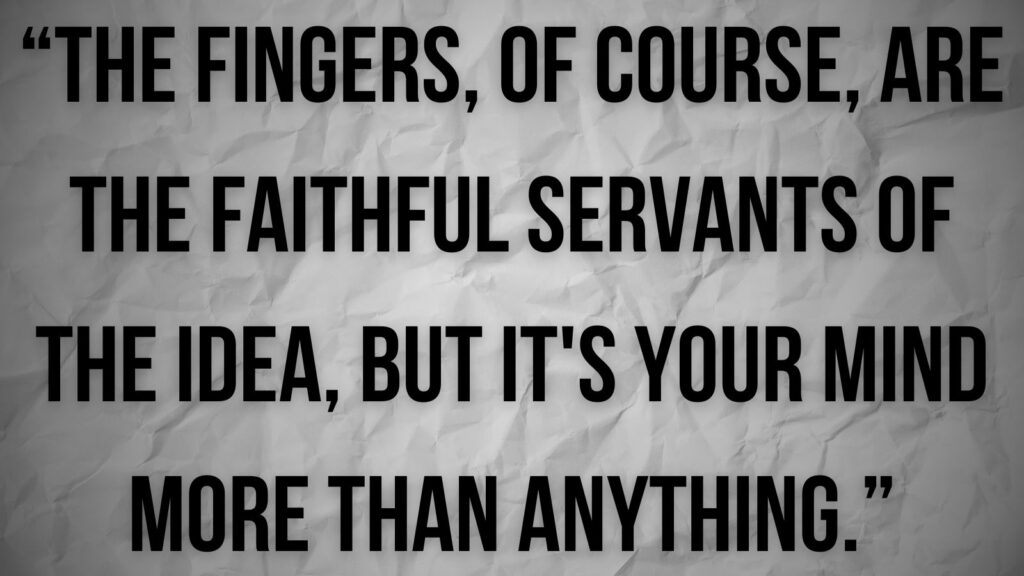Uli Jon Roth went into more detail about how guitar players should deal with creative blockages, as well as how to tackle technically demanding parts. The former Scorpions axeman, and one of the pioneers of the neo-classical movement in rock music explains that it all starts in your head. Appearing on the Rock Interview Series podcast, he reflected on the problem of blockages while discussing his Sky Guitar Academy, offering (transcribed by Killer Guitar Rigs):
“There are a lot of things that I think that a lot of players — and a lot of people who want to play the guitar — could benefit from that they maybe don’t quite realize. A lot of people — how shall I say — have a lot of blockages in themselves, in their minds. And it’s these that hold them back.”
“I learned very early on — I realized that these blockages are not a good thing,” Roth explained. That’s, of course, very obvious. But Roth further pointed out how to deal with these. It might sound a little wild, but we’d say that he’s only something. The guitar legend added:
“I learned to completely empty my mind, forget about everything, be 100% in the music, and literally just become the note to the point where you don’t exist anymore. Once you’re at that stage, music becomes very easy.”
And the same method applies when you’re trying to tackle technically demanding parts. In order to one day become a virtuoso, it all starts with clearing your mind. And, more importantly, he argues that the process doesn’t start in your fingers.
“And you can also master technically difficult things because it’s not in the fingers,” Uli continued. “The fingers, of course, are the faithful servants of the idea, but it’s your mind more than anything.”

“Once you have understood things in the mind, you will find a way to translate them into the fingers. A lot of people get too caught up in the sheer technical minutiae.”
“A lot of that, I think, can be dealt with instinctively once you understand the bigger picture. And once you see yourself as an instrument — which we are, I think —that’s where it gets in the way because we’re not just playing the guitar.”
“I wouldn’t say we’re playing ourselves, but it plays through us, and we shouldn’t get in the way. We should be, in a way, also directing it, of course, but only to a point where we allow things to unfold.”
“It’s difficult to describe these things in a few words, but once you understand these principles, you can learn to get much better, much quicker, with less practice. Sounds like a miracle cure, but it is.”
Being a “miracle cure” or not, it seems to have worked for Uli. Instead of pushing for things really hard, he just went with the flow. And here he is today — being one of the most respected guitar players in rock music.
“I mean, I’ve applied that all my life instinctively from the beginning,” he added. “And that’s why I got where I am now — because I instinctively understood certain things and applied them.”
He also points out that, with this approach, “you can do things with very, very little practice.” Again, it feels like a “miracle cure” but it’s not that simple. You still have to put in a lot of effort.
“Not that practicing is a bad thing — you need to do your homework,” Roth explained. “And when I was much younger, I did also a lot of practicing, like everybody. I paid my dues. But then there comes a point where more and more the mental thing is important.”
Going off on this, Uli also revealed that when the pandemic hit back in 2020, he pretty much stopped playing altogether, only to get back at it after about a couple of years.
“To give you an example — when the virus struck, for some reason, I didn’t touch the guitar,” the musician offered. “I didn’t play for two years, full stop, and never touched it. And I didn’t need to. I played some piano, but I didn’t play the guitar.”
“And I thought that it could be interesting to take a sabbatical. I didn’t know it was gonna be two years. Then we had a gig lined up. Suddenly, I was, quote, unquote, ‘forced’ to play again because the gig was there — we had rehearsals in Hamburg; the gig was in Spain, I think.
“We had three days of rehearsals, and even before the rehearsals, I thought, ‘I’m not going to practice. Let’s see what happens.'”
That sounds very risky. But he still went with it. As it turns out, his mind was still working as a well-oiled musical machine. It was just his fingers that weren’t entirely following through:
“You know, maybe I’m a sucker for danger or punishment. Certainly a sucker for certain amounts of danger. And sure enough, on the first rehearsal day my fingers were bleeding, but my mind was actually able to do it. And then the second day was a lot better. By the third day, it was almost there.”
“Come the gig, which was, I think, a couple of days later, including flying or whatever. It was great! And my guitar player, David [Kloskinski], you said ‘You played better than before’. And I thought so too, actually.”
“It was very healthy to take this long sabbatical because it gave me such a fresh new outlook. A lot of people have to play every day to be happy campers, but I’m not one of them. In fact, I don’t like to play every day. It’s not for me.”
Photo: Markus Felix (20180520 Gelsenkirchen RockHard Uli Jon Roth 0148)


